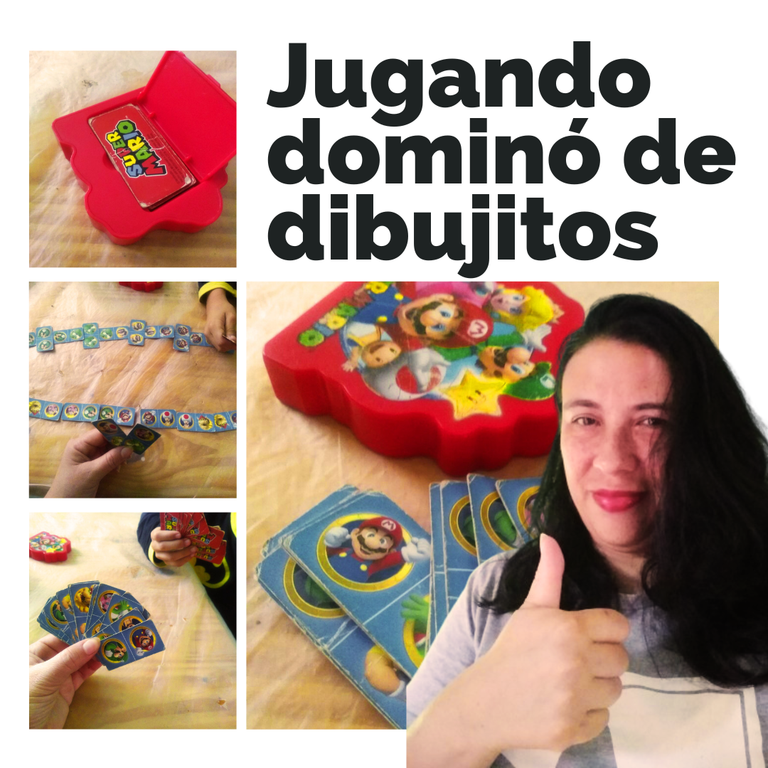
Being a mom who is almost always busy with work, I have had to come up with ways to share playtime with my youngest son, especially during the pandemic, since we usually went to the park for him to have a little fun and, most importantly, burn off all that pent-up energy.
That's when we changed our strategy and started playing board games. He was 5 years old at the time, and to my surprise, he understood the dynamics of the domino game, although not so much about the strategies involved; but since we were just looking to have fun, placing the pieces according to the numbers was enough.
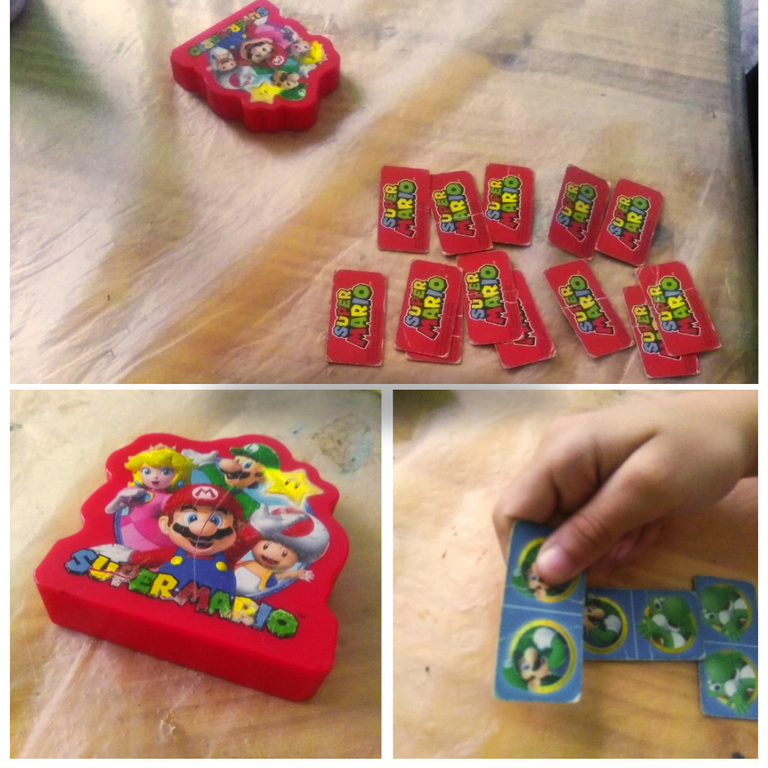
During one of our recent outings for hamburgers, they were giving away a toy that was a domino set with Mario Bross movie characters, which became our fixed game for the evenings when I got home.
Since it didn't come with instructions, we decided that the double six, or the "cochina" as they call it in Venezuela, was the piece with double Mario, and whoever had that piece would start the game!
It was a pleasant surprise for us as parents to see how sometimes, even without cheating, our little one would win against us. At this point, we started explaining some strategies to him, which helped him understand the importance of using logic and counting the pieces before making a move in the game.
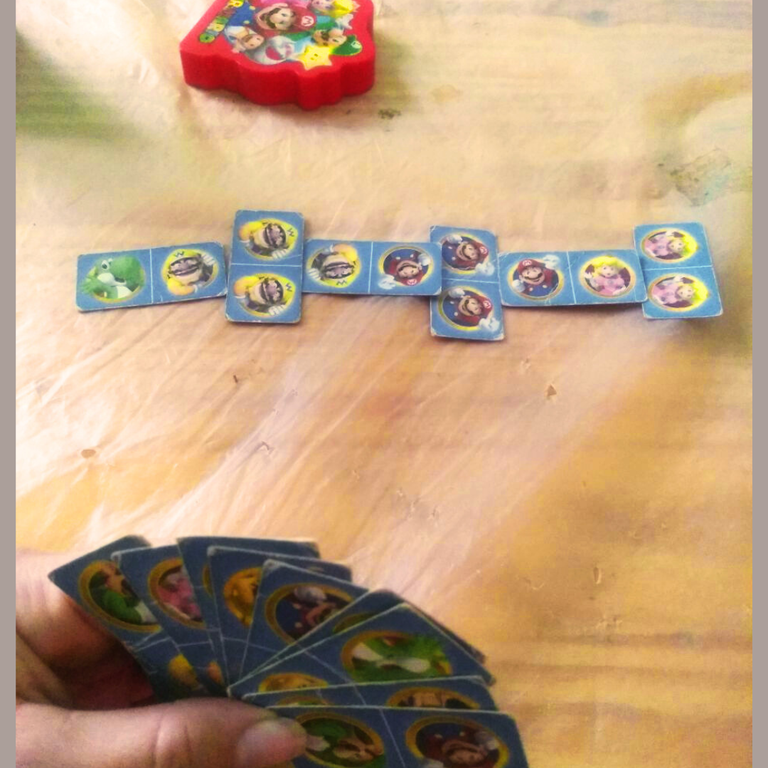
For my son, many years later, it's still exciting to challenge each other to a game of dominoes at home, and although we don't play as frequently as before, he still retains the same skills and has even improved his gameplay.
One thing I haven't been able to correct in him yet is that in these types of games, just like in card games, it's important not to show emotions that could give hints to opponents since he always comments on whether he has a particular character or not.
Ultimately, I believe that beyond what I can teach him through the game, the most important thing for him is the time we spend in the few games we play, as if it were up to my son, we would play dominoes for about 4 hours straight, but here, quality prevails over quantity.
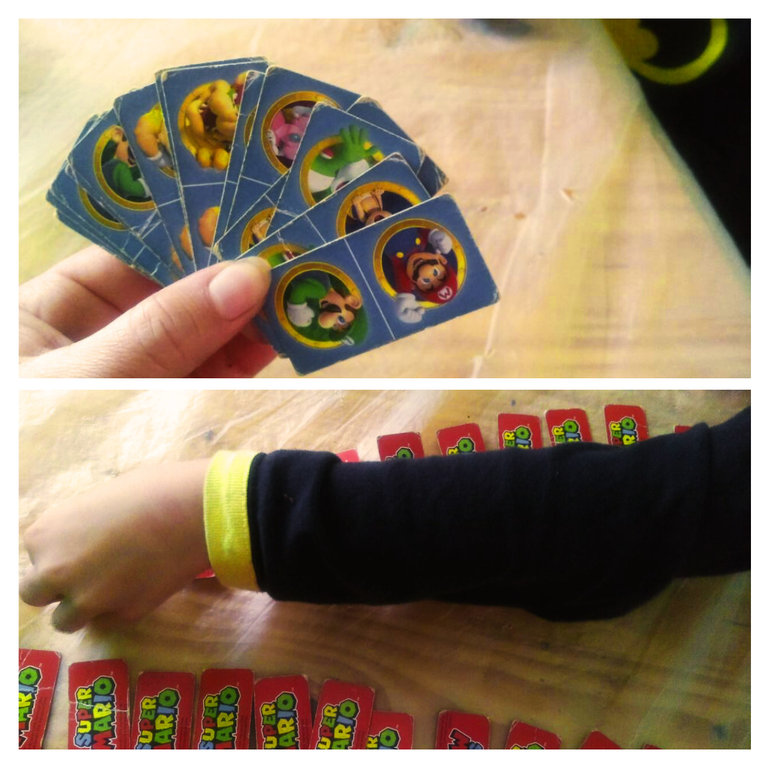
What is not up for debate is that every player has the right to a rematch, which is why sometimes I let him win to have time for other activities, or in some cases, we leave the game pending for the night if it's time for me to go back to work for the second shift.
And how do we determine the winner when the pieces don’t have numbers? Well, we don't really care much about winning, but when he gets into competitive mode, we simply count how many pieces we each have left, and the one with the least wins.
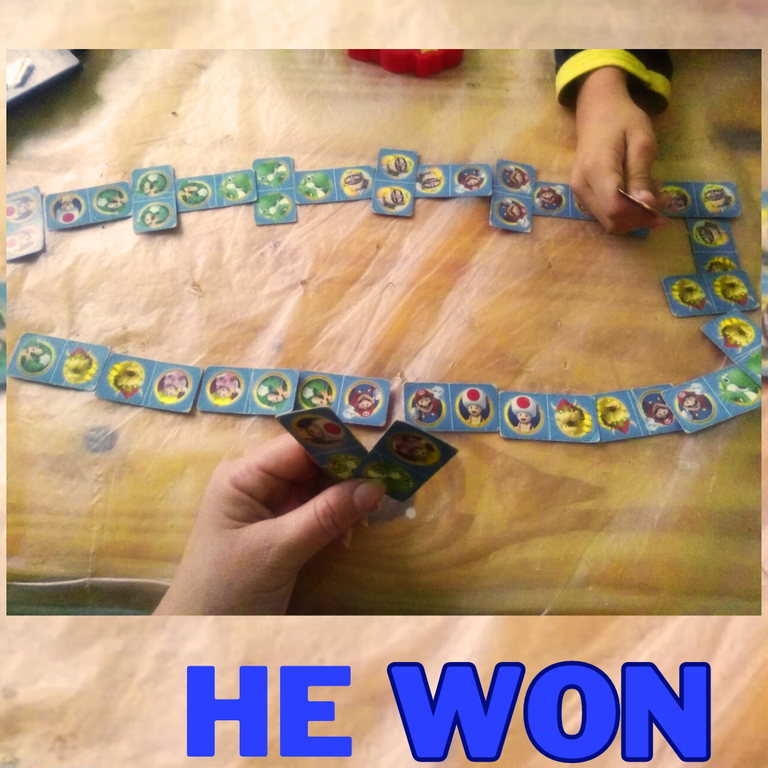
Just yesterday, we resumed the game because when the UNO cards arrived, our excitement to play it replaced dominoes for several months, although now we agreed to play both since that shared time is super fun for us, and that's even before we started with bets!

Siendo una mamá que está casi siempre ocupada en el trabajo, me ha tocado ingeniármelas para compartir momentos de juego con mi hijo menor, sobre todo en la época de pandemia, puesto que usualmente íbamos al parque a que se distrajera un rato y sobre todo, drenara toda esa energía que tenía acumulada.
Fue entonces que cambiando la estrategia, empezamos con los juegos de mesa. Tenía para entonces 5 años, y para mi sorpresa entendía la dinámica del juego de dominó, aunque no mucho sobre las estrategias del mismo, pero como nosotros buscábamos era divertirnos, con colocar las piezas acorde a los números era suficiente.

Justo en uno de los últimos paseos para comer hamburguesas, estaban entregando un juguete que era un dominó con las figuras de los personajes de la película Mario Bross, el cual pasó a ser nuestro juego fijo por las noches cuando llegaba a casa.
No venía con instrucciones, así que decidimos que el doble seis, o la "cochina" como le dicen en Venezuela, era la pieza con el doble Mario, quien tenga esa pieza es el que inicia el juego!
Fue para nosotros como padres, una grata sorpresa ver como a veces, sin hacer "trampitas" nuestro pequeño nos ganaba. Llegado a este punto, empezamos a explicarle un poco sobre las estratégias y ello nos ayudó con el tema de usar la lógica y el contar las piezas antes de dar un movimiento en el juego.

Para mi hijo, ya muchos años después, sigue siendo emocionante poder desafiarnos en casa a una partida de dominó, y aunque ahora no lo jugamos con tanta frecuencia como antes, sigue conservando las mismas destrezas e inclusive ha mejorado su juego.
Lo que aún no he podido corregirle, es que en este tipo de juegos, así como en el de cartas, es importante no demostrar emociones que le den pistas a los contrincantes, ya que siempre comenta si tiene o no algún personaje en particular.
A fin de cuentas, considero que más allá de lo que pueda enseñarle a través del juego, es más importante para él, el tiempo que compartimos en las pocas partidas que hacemos, ya que si por mi hijo fuera, jugaríamos dominó unas 4 horas seguidas, pero acá lo que impera es la calidad por encima de la cantidad.

Lo que si no se discute es que cada jugador tiene derecho a una revancha, y es por esto que a veces me dejo ganar, para poder disponer de mi tiempo en otras actividades, o en algunos casos, dejamos la partida pendiente para la noche, si se nos llega la hora en la que debo regresar al trabajo, para el segundo turno.
Y como se sabe quien gana, al no tener números las piezas? Pues realmente no nos interesa mucho ganar, pero cuando él se pone en modo competitivo, simplemente contamos cuantas cartas nos quedaron a cada uno, quien tenga menos, resulta ganador.
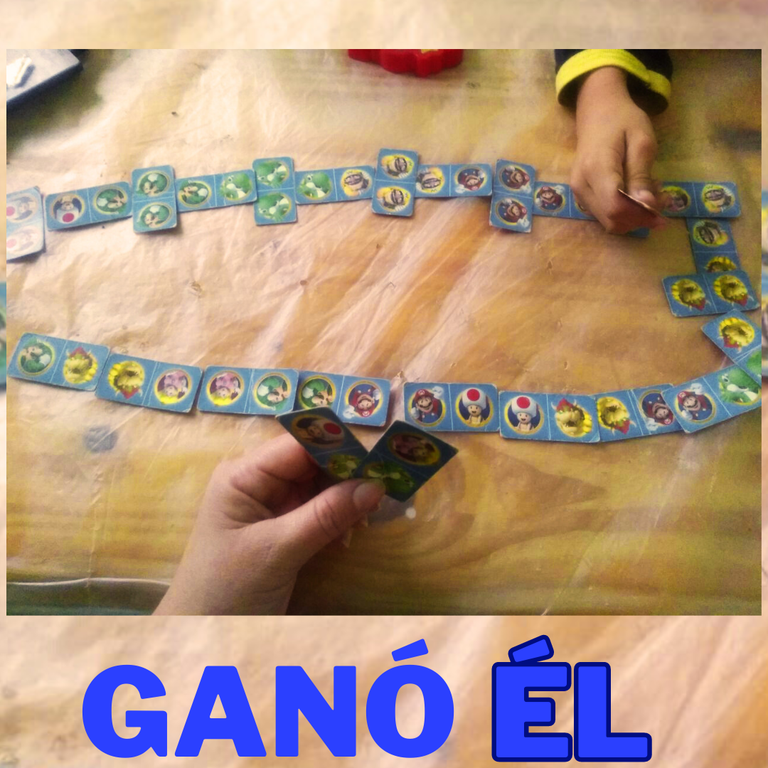
Justo ayer retomamos el juego, ya que cuando llegaron las cartas de UNO, nuestra fiebre por jugarlo sustituyó al dominó por varios meses, aunque ahora hicimos el convenio de jugar ambas cosas, pues ese tiempo compartido nos resulta super divertido, y eso que aún no hemos empezado con las apuestas!
Foto/Photo by: @mamaemigrante
Edición/Edited by @mamaemigrante using canva
Translated and formatted with Hive Translator by @noakmilo.
